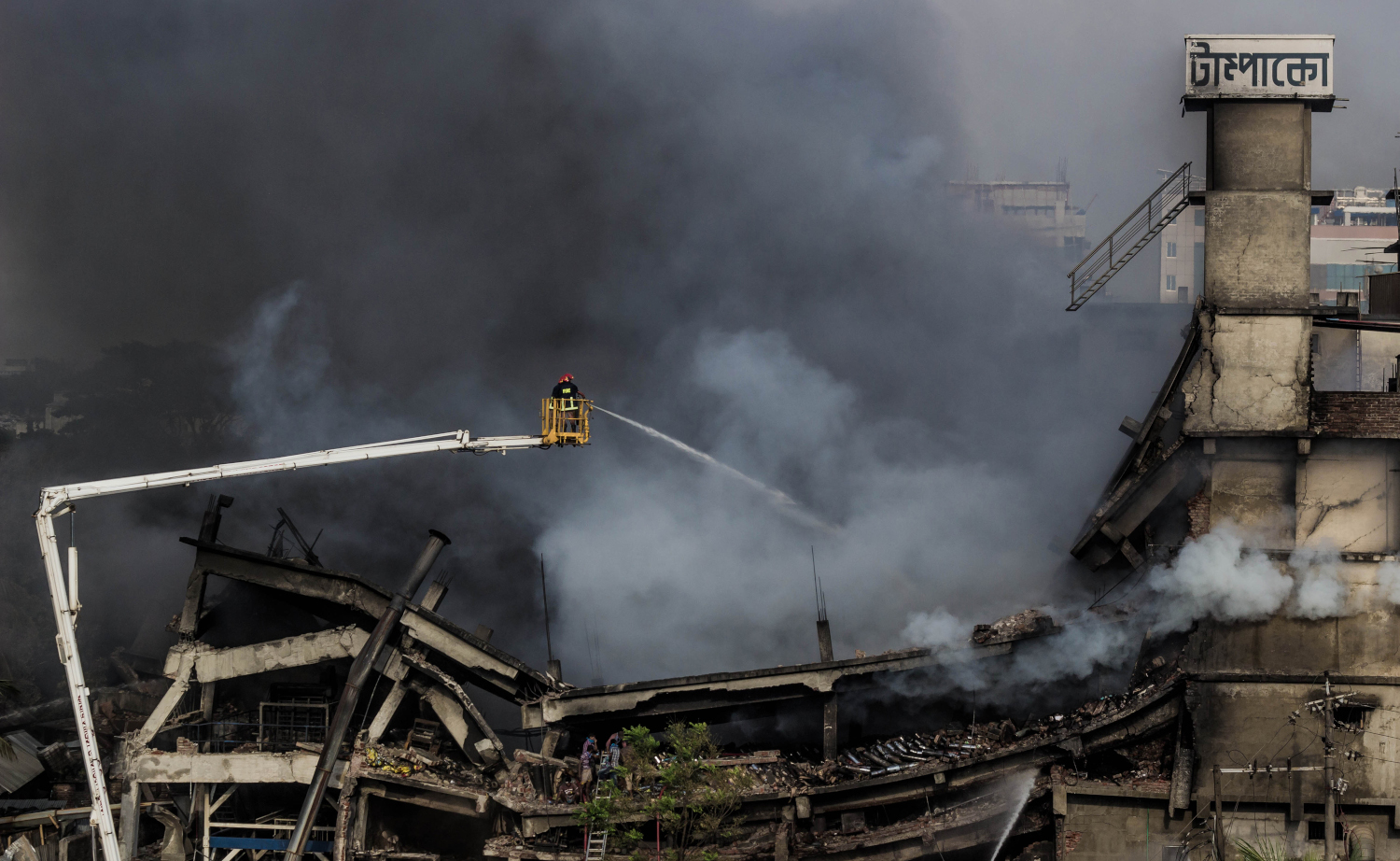Zero Impact?
 Image by Jubair1985 licensed CC BY-SA 4.0
Image by Jubair1985 licensed CC BY-SA 4.0
Image depicts the Tampaco Foils Factory fire in Bangladesh, where 42 workers lost their lives.
Is it possible to get to a state where we have zero impact on the environment around us, and collectively zero impact on the planet?
Practically, the answer to the latter is likely no. Collectively, we are unlikely to exist with zero impact on the planet, nor in some sense should we. Natural systems, ourselves included, interact with and change the Earth. We are one with the Earth. As we act and change, so does the Earth.
We could model our goals as an examination of our impact. This is how we talk about climate change for example. "Our emissions are X and we would like them to be Y by 2050." One could imagine metrics built around the different types of impact we have. How much water do I require be used each year? That is, water harvested and piped in to plumbing, used, and sent back to the Earth somewhere afterwards. In New York City, much of the water is recycled and immediately reused, meaning a liter of water from the tap might only see 10% "used" by this action, as bits leak out of pipes in to the ground, evaporate, or are discharged in to some waterway for cleansing by our oceans. Think though of the resources required for recycling, and tally that with your metrics too.
I've heard raising a pound of beef takes much more water than a pound of vegetables, because the beef eats grass, and that grass took quite a lot of water to grow. When we order toothpaste from Amazon, what is that impact? There's computer servers handling my request, a warehouse somewhere churning, and trucks operating daily shuffling packages to my neighborhood. If the truck was already dropping off a package at my neighbor's house, what fraction of its emissions am I responsible for? How would that change if the truck was electric, and where does my electricity come from? What did it take to make the truck, and how does that factor in compared to what fuel it consumes?
How much crude oil was burned in the tanker ship that delivered the palm oil added to my shampoo? Whose forest was burned to grow that palm oil, and who was bribed to call the palm oil "rainforest certified?"
Who paid for the advertisement that said I need smooth shiny hair? How would my impact change if I made my own shampoo from oatmeal, and would society look at me aghast despite the lowered impact?
Where was my laptop built? Who mined the minerals it required, and how do they live? Where were my clothes made? Who made the cloth? Do the factory owners drive ferarris while the workers struggle to survive? What fraction of that ferrari counts towards my impact? Is it one milliliter of petrol per customer? Or per meter of fabric? How many ferarris do I support when I buy a pair of shoes from Sports Basement?
Which factories I require have been the site of a massacre? How many indigenous people were murdered so that I could have cheap toys for my child? How many union leaders have been killed by government police so the workers don't go on strike? How many people have died in the collapse of a building they worked in because the owner refused to maintain the structure? How many of those people made my goods?
All over the world, one can find these stories. Central America was raped and now I have cheap fruit. Lands were stolen by corrupt dictators we supported, and once we bought the land for a song we called its bounty "fair trade." How many bullets were fired for the fuel I used on my morning commute?
Is there anything I can do to change this? How can I honor those who have given their lives to make my shoes? How can I prevent the same fate from happening to their children, or their children's children? Can I live my life without the need for such pain? Can my life work to help others? Can I raise others up instead of using them as stepping stones?
How does my life need to change to realize this better world? What do I think I need that my wiser self could teach me to let go of? What can I do to love and enjoy life without relying on the destruction of other peoples, other lives, and other worlds?
To start, we must begin to understand how deeply we depend on the lives of others, and we must look closely at what our reliance does to them. When you reach for a product, think of the impacts its production has on the world. Think about what you support. How do you feel about plastic waste? Fair treatment of women? Who made that product and what is their life like? Do you know? Do you know your impact?
